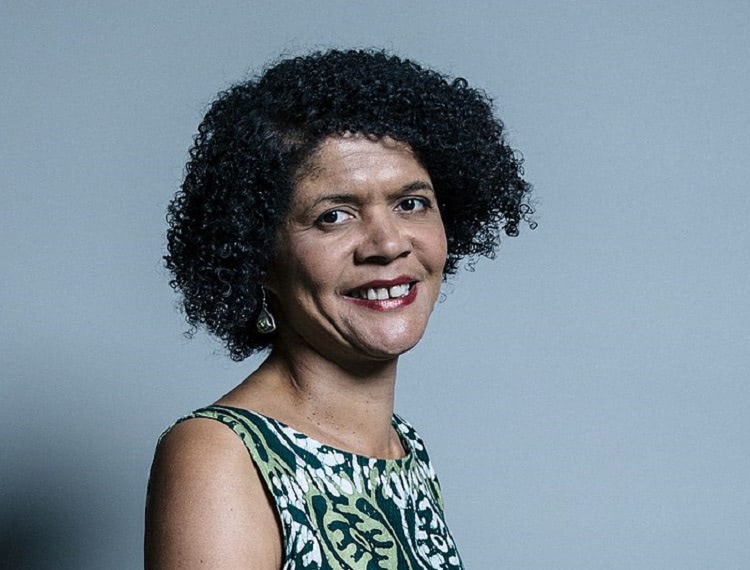Parliamentarians call for new Minister to address inequity in education amidst UK conversation on race

A new Ministerial post responsible for addressing the entrenched inequity in our education system should be created, a cross-party group of parliamentarians has found
Released today (23 Jun), the new report from the All-Party Parliamentary Group (APPG) on Diversity and Inclusion in Science, Technology, Engineering and Maths (STEM), titled “Equity in STEM Education”, highlights the need for a more joined-up approach by Government to tackle the causes of inequity in the education system. The inquiry focused on equity, because of evidence that treating everyone equally within education provides unequal outcomes, as it assumes all young people begin in similar circumstances.
During their research, the APPG found the current education system fails to provide needs-based learning opportunities in STEM education to all students (3-19) in England. The lack of a joined-up Government approach, schools’ role in GCSE option selection and a lack of access to good careers education were part of several factors contributing to the inequity in the system.
Based on these findings the APPG has made six recommendations, with parliamentarians calling on the Government to introduce:
- A Minister responsible for addressing inequity within the education system
- STEM education that is more relevant to the lives of all young people
- Greater action to address teacher shortages in STEM subjects
- Fully implement changes to careers support and guidance suggested by the Careers Strategy for England (2017)
- Steps to address the existing inequalities in provision of Double Award and Triple Science at GCSE
- A review of fundamental changes to STEM GCSEs which considers equity issues
The APPG on Diversity and Inclusion in STEM, chaired by Chi Onwurah MP, was formed in 2018 and is a cross-party group dedicated to promoting the inclusion and progression of people from underrepresented backgrounds in STEM.
The group has over 20 members and officers from across parties and both Houses. Equity in STEM education is important for Chi, as she herself graduated from Imperial College London with an Electrical Engineering degree in 1987; and she had a career in engineering and technology before entering parliament.
Chi Onwurah MP, Chair of the APPG on Diversity and Inclusion in Science, Technology, Engineering and Maths (STEM), said:
“The recent global protests on inequality have only further served to highlight that we must continually review the systems we have in place to ensure they are fit for purpose. Nowhere is this clearer than in STEM education.
“I am pleased to launch the APPG on Diversity and Inclusion in STEM’s first report on the incredibly important topic of equity in STEM education. Our report shows that whatever the socio-economic background, from the age of three onwards, children are currently suffering from the levels of inequity in STEM education.
“It has been encouraging to see my colleagues from across the political spectrum come together with organisations who are leading the way in helping make STEM education more equitable for current and future generations.
“The report contains new ideas and solutions that can help more young people build their skills and raise their aspirations. It is my hope that the Government looks closely at the recommendations in the report. Addressing the current inequity in STEM education now will pay dividends, as the next generation go on to plug the current STEM skills gap, ensuring the UK continues to be a world leader in scientific and technological innovation.”
The question of underrepresentation of certain demographics within STEM industries and academia is one that has challenged policy-makers and businesses for years. Tapping into missing talent and reducing the numbers of children who experience inequity is important to meet the skills challenges of the future.
The evidence from the National Audit Office suggests there is a mismatch between the STEM skills needed and those available in the UK.
According to STEM Learning, the shortage of STEM skills in a number of important sectors has been estimated to cost businesses £1.5bn per year.
|
Genevieve, Head of Science at a school in Croydon – studied Forensic Chemistry at University and out of 70 people was the only black woman on her course. Launched her own ‘Young Gifted and STEM’ group to enhance the experiences of young BAME students and is writing her own curriculum to make science more relevant to black students Ruthie, Vice Principal at a school in Acton – currently re-writing the whole STEM curriculum as it does not fit the needs of pupils and had to teach Computer Science at her previous school despite being a religious studies teacher as they were unable to hire a teacher for 9 months Daniel, Senior Vice Principal at a school in Birmingham – has found a very low uptake in recruitment of STEM teachers to more disadvantaged areas meaning schools cannot even offer Triple Science as an option, and inspiring students in STEM has come from taking students to STEM events or listening to industry professionals Will, Secondary Headteacher at a school in Enfield – has found there are far too few female scientists named in the curriculum, which undoubtedly has knock on impact, there needs to be a discussion on who should be added to the national curriculum. More work needs to be put into raising students’ aspirations and developing subject mastery Vanessa (19), studying Mathematics at Imperial College and recent winner of their Woman of the Future Rising Young Star and ‘Presidents Awards for Excellence in Societal Engagement’ awards – believes students develop maths anxiety because of their teachers rather than their ability and the shortage of STEM teachers is a serious barrier that limits choices at A-Level, and impacts access to courses at university Haneef (17), a pupil attending school in Croydon – Didn’t believe he’d be able to pursue a career in STEM until he attended a careers fair in Year 10 and is now in sixth form studying IT and Applied Science and wants to study Electrical Engineering at University Swetha (21), Mechanical Engineering student and Outreach Coordinator for her university’s Engineering Without Borders Society – the lack of diverse role models in the curriculum negatively affected her confidence and when starting university she was already behind males on her course as she had been provided with no previous experience of computer engineering |
In the current context of the Black Lives Matter protests, historically weak productivity, the UK’s recent departure from the EU, environmental challenges and the COVID-19 pandemic , the report found a clear need to widen the talent pool by improving diversity within the pipeline of STEM candidates, which would make a substantial contribution to reducing skills shortages. While some limited progress has been made, further improvements would help alleviate what many see as one of the UK’s key economic, societal and ethical problems.











Responses